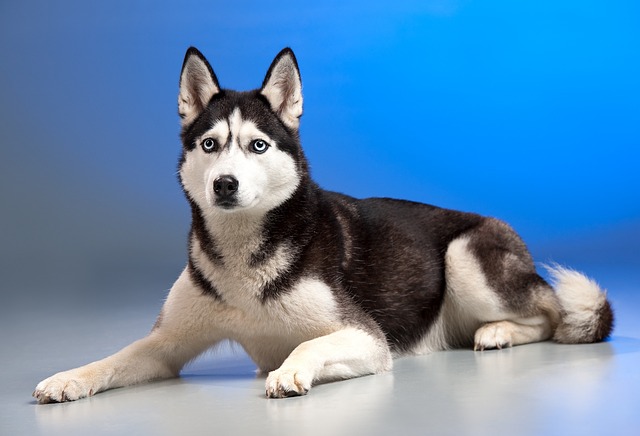
How can I tell if my dog's heatstroke is serious
Let’s be real: It’s a sticky August morning in Los Angeles, and you took your 2-year-old Golden Retriever, Max, for a walk a little later than usual
When we take good care of our furry children at home, the oral health of dogs is often overlooked. Just like humans, dogs also need to maintain oral hygiene and prevent oral diseases. Usually, we choose dog toothpaste to help them clean their teeth, but in some special cases, such as suddenly running out of dog toothpaste or dogs being allergic to commercially available toothpaste, we need to find suitable alternatives. So, what can be a good substitute for dog toothpaste?
Firstly, let's understand why dogs cannot use human toothpaste. Fluoride is commonly found in human toothpaste, which has a good effect on preventing dental caries in humans, but may be harmful to dogs. Dogs often swallow toothpaste while brushing their teeth, and excessive intake of fluoride may lead to fluorosis, affecting their physical health. Therefore, it is essential to search for safe and effective alternatives to dog toothpaste.
Yogurt without sugar is a good choice. Yogurt is rich in beneficial bacteria such as lactic acid bacteria, which can not only help dogs maintain intestinal health, but also to some extent inhibit the growth of harmful bacteria in the mouth. When we use gauze or a finger brush dipped in an appropriate amount of yogurt to clean the teeth of dogs, the beneficial ingredients in yogurt can form a protective film on the surface of the teeth, reducing the adhesion of bacteria and thus playing a role in cleaning the oral cavity. Moreover, the sour and sweet taste of yogurt is highly attractive to many dogs, making the brushing process smoother and less resistant. Watching the dog enjoying brushing its teeth, the owner will also feel very pleased.
Coconut oil is also a natural substitute for dog toothpaste. Coconut oil is rich in medium chain fatty acids, among which lauric acid has strong antibacterial and antiviral properties. Applying a small amount of coconut oil to a dog's teeth and gums can effectively kill harmful bacteria in the mouth and reduce the formation of dental plaque and tartar. Coconut oil also has a mild lubricating effect, which can reduce friction on the dog's mouth during brushing, making the dog feel more comfortable. Every time you use coconut oil to brush your dog's teeth, it feels like a gentle oral care, and the owner can also feel the peace of mind brought by this natural way of care.

Baking soda is a versatile player in the field of cleaning and can also play a role in dog oral care. Mix baking soda with an appropriate amount of water to make a paste, dip it in with a toothbrush, and gently brush the dog's teeth. Baking soda is weakly alkaline and can neutralize acidic substances in the mouth, inhibit bacterial growth, and effectively remove stains and odors on the surface of teeth. However, when using baking soda to brush teeth, it is important to control the dosage and avoid excessive intake. At the same time, brushing should be gentle to avoid damaging the dog's gums. When a dog's mouth, which originally had a slight odor, becomes fresher, the owner will truly feel the benefits brought by this simple and practical substitute.
Diluted apple cider vinegar can also be used for oral hygiene in dogs. Apple cider vinegar contains acetic acid, which has the effect of sterilization and disinfection. After diluting apple cider vinegar, dip it in a cotton ball or gauze and gently wipe the dog's teeth and gums to effectively clean the mouth and prevent oral diseases. Moreover, apple cider vinegar can regulate the acidity and alkalinity in dogs' mouths, creating an environment that is not conducive to the survival of harmful bacteria. Every time apple cider vinegar is used to clean the dog's mouth, it is a safeguard for the dog's health, and the owner's love for the dog is also reflected in these subtle aspects.
Although these alternatives can meet the oral hygiene needs of dogs to some extent, they cannot completely replace professional dog toothpaste. Dog toothpaste is specially designed to not only clean the mouth but also meet the special needs of dogs, such as taste and safety. So, if conditions permit, it is still recommended to use dog toothpaste to brush your dog's teeth. But when encountering special situations, these alternatives are undoubtedly good emergency choices. As long as we take good care of our dogs' health, whether it's using professional toothpaste or substitutes, we can give them a healthy mouth and accompany them through more wonderful times.

Let’s be real: It’s a sticky August morning in Los Angeles, and you took your 2-year-old Golden Retriever, Max, for a walk a little later than usual

You're enjoying a summer afternoon at the park when you notice your dog has stopped panting and appears disoriented - their gums are bright red

Let’s paint the picture: You’re in your Denver apartment, watching your 4-year-old Boston Terrier, Ruby, plop down mid-play session with her favorite toy

Many dog owners notice their pets nails seem shorter after regular walks,but how much does this daily activity actually help?The answer depends on where you walk—concrete sidewalks or asphalt streets gently file nails as a dog's paws hit the ground

Most dog owners notice their pup scooting across the carpet at some point, but few connect it to impacted anal glands. These small sacs near a dog’s rectum secrete a scent for marking territory

Most vets agree that regular dog teeth cleaning is key to avoiding painful dental issues later. For healthy adult dogs, a professional cleaning at the vet’s office every 12 to 18 months usually works well.